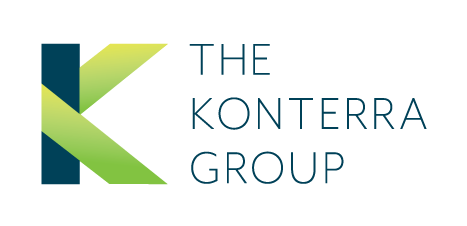Get in Touch
700 12th Street NW
Suite 700
Washington, DC 20005
Join us, with our partners Munisha B., Mina Day, and Ghida Husseini, for a virtual conversation on “Supporting the Mental Health & Wellbeing of Local National Staff”
In this conversation, we discuss why it’s important for humanitarian and development organizations to develop a strategy to provide psychosocial support… particularly to local national staff.
“The international humanitarian development sector as a whole has made significant progress over the years in extending equitable benefits to national staff… and there’s more that needs to be done on this front.” (Lynne Cripe, CEO, The KonTerra Group)
On the importance of mission and values
“Looking at things from an organizational perspective, it’s incredibly important that the decisions that you’re making are guided by your mission and your vision and some of the principles that you have as an organization, because they’re also a demonstration of those principles to your staff then they can see them in action. So for Chemonics for example, our mission is to help people live healthier and more productive lives, and one of our key values is caring. And when you combine those things it only makes sense that they type of support we provide extends beyond just the partners that we work with in various countries, but also (and maybe primarily starts) with our teammates and the staff that we work with.” (Mina Day, Chemonics)
On a proactive approach and the importance of managers
“We find that countries sometimes wait until there’s a crisis before realizing they need help. What we’re trying to do is get them to realize it’s not about crisis or emergency, it’s about everyday… If we can support staff and educate them and be open and transparent to understanding that your personal life impacts your work life and we can help you balance that out… and if we not only have external help but we have managers that are well educated in this and are good managers in terms of being open and responsive to people that have issues and challenges that are not particularly work-related, I think finding that balance is really important.” (Munisha Blum, DRC)
On the importance of understanding cultural norms
“Another thing that’s incredibly important is understanding cultural norms. For us, Ukraine was a very good example of that. Being from Eastern Europe myself, I understood some of the cultural underpinnings of the Ukrainian staff. It was clear to me that an approach where we talk about mental health in incredibly western terms would not apply… And you really need to be sure you’re talking to local leadership and you’re understanding the needs, because you can completely miss the mark with the best intentions.” (Mina Day, Chemonics)
On the stigma that still exists around seeking support and help
“I’d like to put the focus on the stigma around seeking support and help. That was already mentioned in the conversation—maybe we can lead by example, maybe we can talk about it to normalize. I would also like us to think about in terms of building resilience by prevention. We [need to send the message that we] don’t need to be seeking these services when something happens and we are not functioning well. If we can be proactive and reflect on how we are doing… When you prevent something it’s much easier than waiting until we’re in burnout.” (Ghida Husseini, KonTerra)
On budgets and how they reflect commitment to staff wellbeing
“The reason why we care about this is linked to values. On the fact of it we may not always think about budgets as reflecting values, but something I’m hearing you say is that our budgets reflect our values, and that if we’re really committed to the wellbeing of our staff, our budgets reflect that, and serve as a platform and a foundation to have a conversation with our funders around that.” (Lynne Cripe, KonTerra)
“The definition of how we handle mental health and psychosocial support for all is supposed to be embedded in some type of a definition of duty of care. And then there does need to be that practical administrative approach which allows it to flow down from the donor to the implementor from the implementor to the partner because each one of us has a slightly different role to play in that ecosystem we need to build up of duty of care and that has to be recognized, because there will be actions that have to be taken on each level, and those actions are connected to budgets. (Mina Day, Chemonics)
About donor involvement in supporting staff wellbeing
“This [budgeting for wellbeing] is something I’d like to see more of a conversation around it. Wellbeing is still, in my opinion, very new to a lot of organizations and I think that it should be explored more and we have a long way to go with it. If we can get more donor engagement and we this becomes a core part of what they fund I think we’ll do well going forward. Because we need funding for it. It’s not something that’s a given or that’s easy to achieve financially. And we need the human resources for it. I’d like to see a bit more conversation and input and care from donors about how we can do this better as far as the donors are concerned. ” (Munisha Blum, DRC)
The panel also discussed key considerations related to culturally appropriate modalities of providing support, the boundaries between leadership and mental health professionals, and more. Listen to the full conversation above, or find the video on YouTube.
The KonTerra Group specializes in staff care, organizational resilience, and evaluation services to enhance well being and improve performance for those working in high-stress environments or roles.

700 12th Street NW
Suite 700
Washington, DC 20005

 Staff Care Assessments: A Case Study
Staff Care Assessments: A Case Study